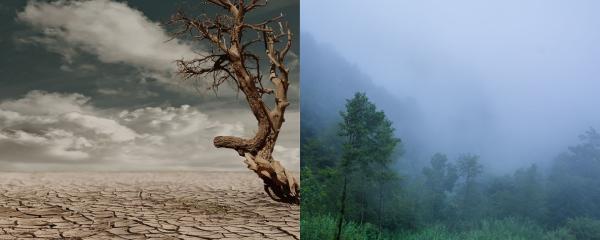
IIT Palakkad study shows how different indices used to predict drought combined with effects fof climate change can lead to different climate predictions for the future

IIT Palakkad study shows how different indices used to predict drought combined with effects fof climate change can lead to different climate predictions for the future
An international team, including scientists from California Institute of Technology, USA, University of Oxford, UK, Indian Institute of Technology Bombay, Mumbai, Tata Institute of Fundamental Research, Pune and several other universities from around the globe, are probing radio waves emanating from the source that the produced gravitational wave event GW170817. Their study could reveal more information about the events that cause gravitational waves and its aftermath.
Scientists from Centre for Glaciology, Wadia Institute of Himalayan Geology, Dehradun, Wilfrid Laurier University, Waterloo, Canada, Chhattisgarh Council of Science and Technology, Raipur and National Centre for Antarctic and Ocean Research, Goa studying the surge-type glaciers in Karakoram have noticed irregular behaviour among some of the glaciers in Karakoram. They have now carried out a comprehensive study to try and answer some of the anomalies.
A new study by researchers from Indian Institute of Technology Bombay, Mumbai has, for the first time, demonstrated an efficient way to convert garden waste into fuel pellets that could be used for cooking.
On January 31st starting at around 17:18 IST, India will witness a rare celestial event-- a total lunar eclipse coinciding with a supermoon and a blue moon.
A lunar eclipse occurs when the earth comes in between the sun and the moon, casting its shadow on the moon. This is called a total lunar eclipse.
After a successful first edition, the second edition of the Nobel Prize Series-India is all set to kick off tomorrow at the Kala Academy in Panaji, Goa. The event is jointly organized by the Department of Biotechnology (DBT), Ministry of Science and Technology, India along with the Government of Goa and Nobel Media AB.
New data gathered by researchers from University of Amsterdam (UvA), over a period of several years from slums across Bengaluru could help in understanding and tackling poverty in India.
Earlier this month, we erred. Among the 1000+ articles published on Research Matters, it was the first for us. An alert reader expressed displeasure on Twitter with a hashtag #fakescience on one of our stories. Alarmed, we investigated to note that the story was based on a research paper published in a journal listed as ‘predatory’, and with that, found a lot more about the prevalence of ‘predatory’ journals that hound the world of science.
Scientists from Indian Institute of Space Science and Technology (IIST), Thiruvananthapuram have possibly designed the first sustainable molecular keypad lock, which can also be used as a sensor of a poisonous pesticide.
A coffee table book on the C V Raman International Fellowship for African Researchers, highlighting the successful journey of the programme, was launched jointly by the Federation of Indian Chambers of Commerce & Industry (FICCI) and the Department of Science and Technology (DST).